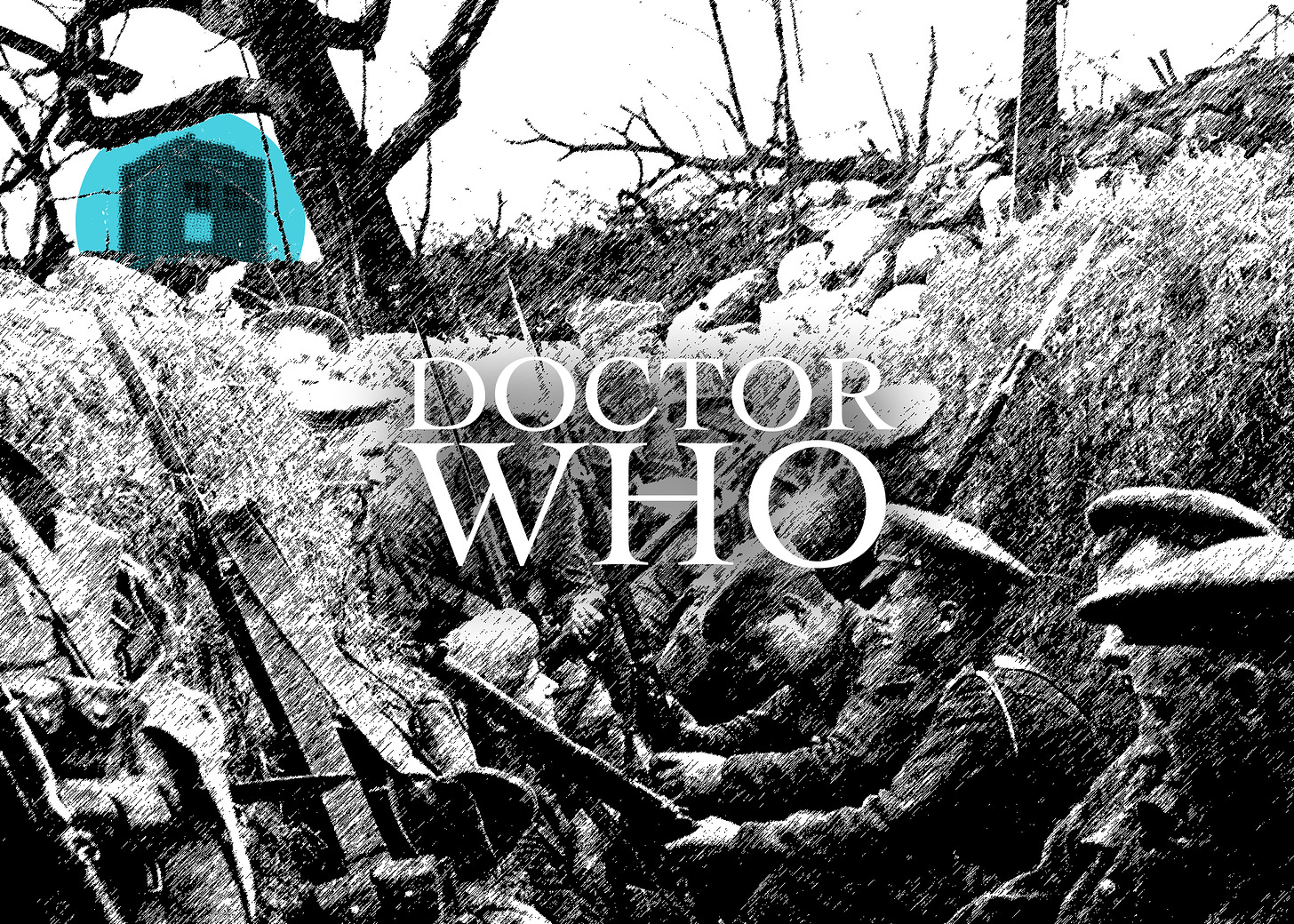An occasional series looking at Doctor Who, a peculiarly British kind of TV show, and its cultural contexts.1
1969
The greatest decade in the history of the world is coming to an end2 and all anyone can think about is the First World War. On TV, Patrick Troughton’s Doctor Who finds himself down in the trenches in The War Games, while up on the big screen, Richard Attenborough gives us an unlikely musical version in Oh! What A Lovely War. Even in films as diverse as the light-hearted Edwardian romp The Assassination Bureau and the death of the old West (and the old Western) The Wild Bunch, the Great War looms over proceedings.
The First World War has a peculiar resonance in 1969: for the Vietnam protesters, the futility of conflict; for the hipsters and drug takers, the end of Edwardian decadent elegance; for everyone who hoped that change was a’coming, the death of a dream of a better world.
The War Games
10 episodes, black and white, April to June 1969
Starring
Patrick Troughton as the Doctor, with companions: Jamie, a Jacobite Highlander from 1764; Zoe, an astrophysicist from the 21st centurySynopsis
The Doctor and his companions arrive on the Western Front during World War I. Or do they? In fact aliens are snatching soldiers from Earth (a notably violent civilisation, apparently) to train the most lethal army in the galaxy, under the aegis of the magnificently moustachioed War Chief.
Oh! What a Lovely War
144 mins, colour. Directed by dear, dear Dickie
Starring
All the stars of British stage and screen; a handful of Redgraves, a brace of Mills and Professor McGonagall in a basqueSynopsis
An incredibly ’60s confection: a stagey film of a conceptual play, telling the story of one family’s experience of the First World War through the metaphor of a day out on Brighton Pier singing period popular songs. It's peculiarly affected, but also, in many parts, peculiarly affecting.
In The War Games The Doctor lands in the middle of World War I, only to discover that it is, in fact, only one of a series of small local wars being run by a shadowy organisation to further its own, larger ends. It could be the CIA in Vietnam, rather than an alien War Chief snatching human soldiers to run a mock First World War on a distant planet.
And there are further parallels with Vietnam - the public perception of futility, for a start. As Oh! What a Lovely War demonstrates; the settled narrative for 1914-1918 is that the gallant youthful flower of the Empire was sent to die in Flanders field by incompetent and foolish generals, for worthless and questionable ends. They were ‘lions led by donkeys’, a phrase that was already so generic in 1961 that Alan Clark was able to adapt it for the title of his book about the war. (Being Alan Clark, he also claimed to have invented it, which, being Alan Clark, he hadn’t.)3
Keep reading with a 7-day free trial
Subscribe to The Metropolitan to keep reading this post and get 7 days of free access to the full post archives.



